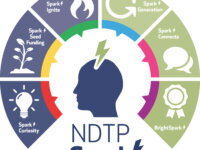Many years of Australian debate and public division around same sex marriage culminated in a single, nation-wide postal survey. The Australian Bureau of Statistics was given only 99 days to prepare, conduct and release the results of a survey of Australia’s 16 million enrolled voters. An amazing 80% of citizens participated in this voluntary survey, enabled by innovative project management and customer-centric service delivery. The project was delivered for 2/3 of its budget, a $40m saving.
Innovation Tag: Leadership
GovTech Poland is a completely new way of bringing innovations to the public sector. We have set out to define new procurement rules, set standards and build bridges between innovators and officials. Organising competitions, workshops, and introducing new digital solutions ourselves, our objective is to make the administration an agile, responsible partner for SME's and startups.
A customer-friendly emergency service model from Finland where the public can find all the assistance they need at one point of service, instead of across several sites. In addition to somatic emergency services, psychiatry, substance abuse and violence prevention, crisis and social work, and child protection are available. The interprofessional model means collaboration towards a shared goal. The operational model, available anywhere in the world, improves emergency services.
Illegal and unethical employment practices should not be tolerated where public money is being spent. The Code of Practice on Ethical Employment in Supply Chains calls on all organisations receiving public money directly or via contracts to ensure legal and ethical employment for workers in supply chains. The Code’s commitments are designed to combat modern slavery and exploitative practices and to promote responsible employment to improve workers’ lives in Wales and across the world.
The Citizen Calendar is an online cross-cutting app that stands as the single point of information about all major events and interactions with the Public Administration. Through a secure digital authentication of their choice, citizens can view, edit and customize events of interest, such as the payment of benefits, fiscal calendars, health appointments, and so on.
Summer Design School is a new approach to teaching and learning human-centred innovation for government employees. It accelerates the development of critical thinking, creative collaboration, and human-centred design capabilities in civil servants with little to no previous exposure to design methods by means of an immersive, cross-sector, experience based curriculum.
National Doctors Training and Planning has commenced The Spark Innovation Program, designed to empower junior doctors to innovate and make positive changes within the public health system.
In a traditionally bureaucratic environment where innovation is not encouraged, the Spark program not only enables innovation but actively encourages it. Through this empowerment of initiative, creativity and expertise, retention of staff is also addressed and morale increased.
The Citizens' Assembly was an exercise in deliberative democracy, placing the citizen at the heart of important legal and policy issues facing Irish society. With the benefit of expert, impartial and factual advice the 100 citizen Members considered five topics. Their conclusions formed the basis of a number of reports and recommendations that were submitted to the Houses of the Oireachtas (the Irish Houses of Parliament) for further debate by our elected representatives.
With the complex service system, it is difficult to help young people with numerous problems. The MY LIFE working method is a co-created, human service integration for young adults, complete with case management, a survey assessment, and an ePlatform.
Challenges facing the public sector are constantly evolving and managers increasingly require rapid access to talent to meet short timelines. Despite this, we still rely heavily on permanent hiring. In this context, we are testing a new workforce model. In this model, public servants are free to choose work that matches their skills and interests and can be rapidly deploy to work on projects.



